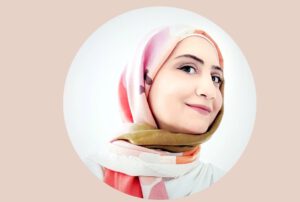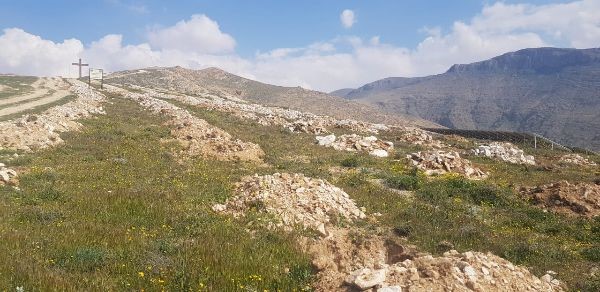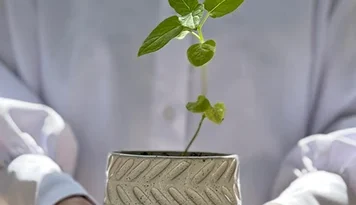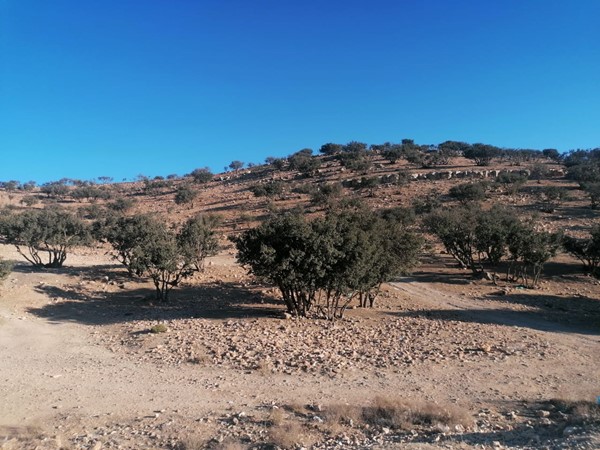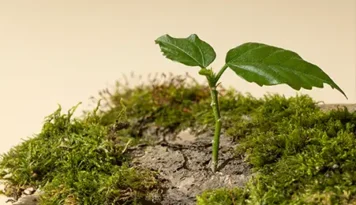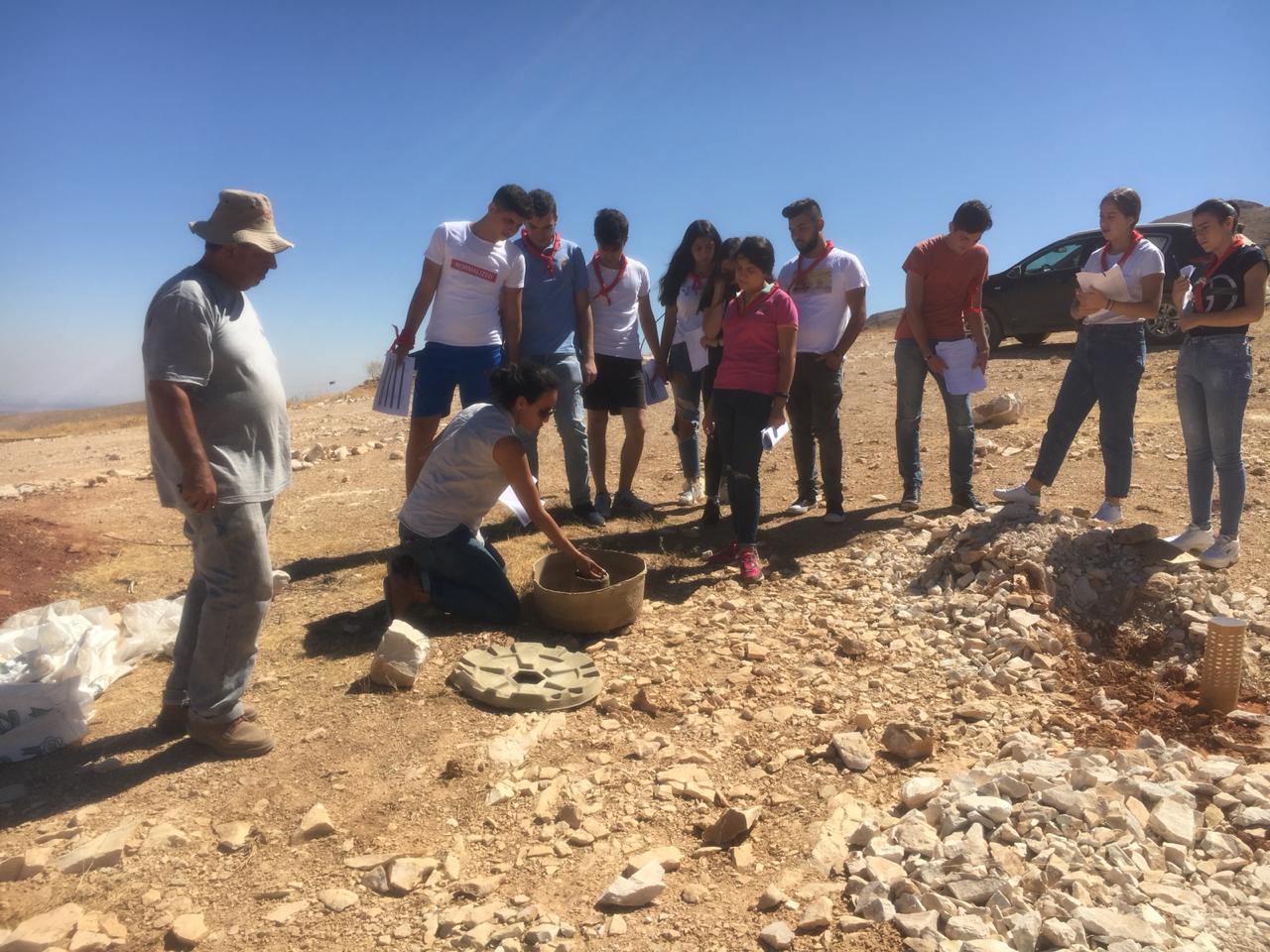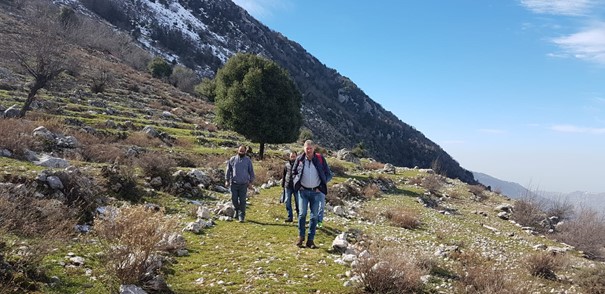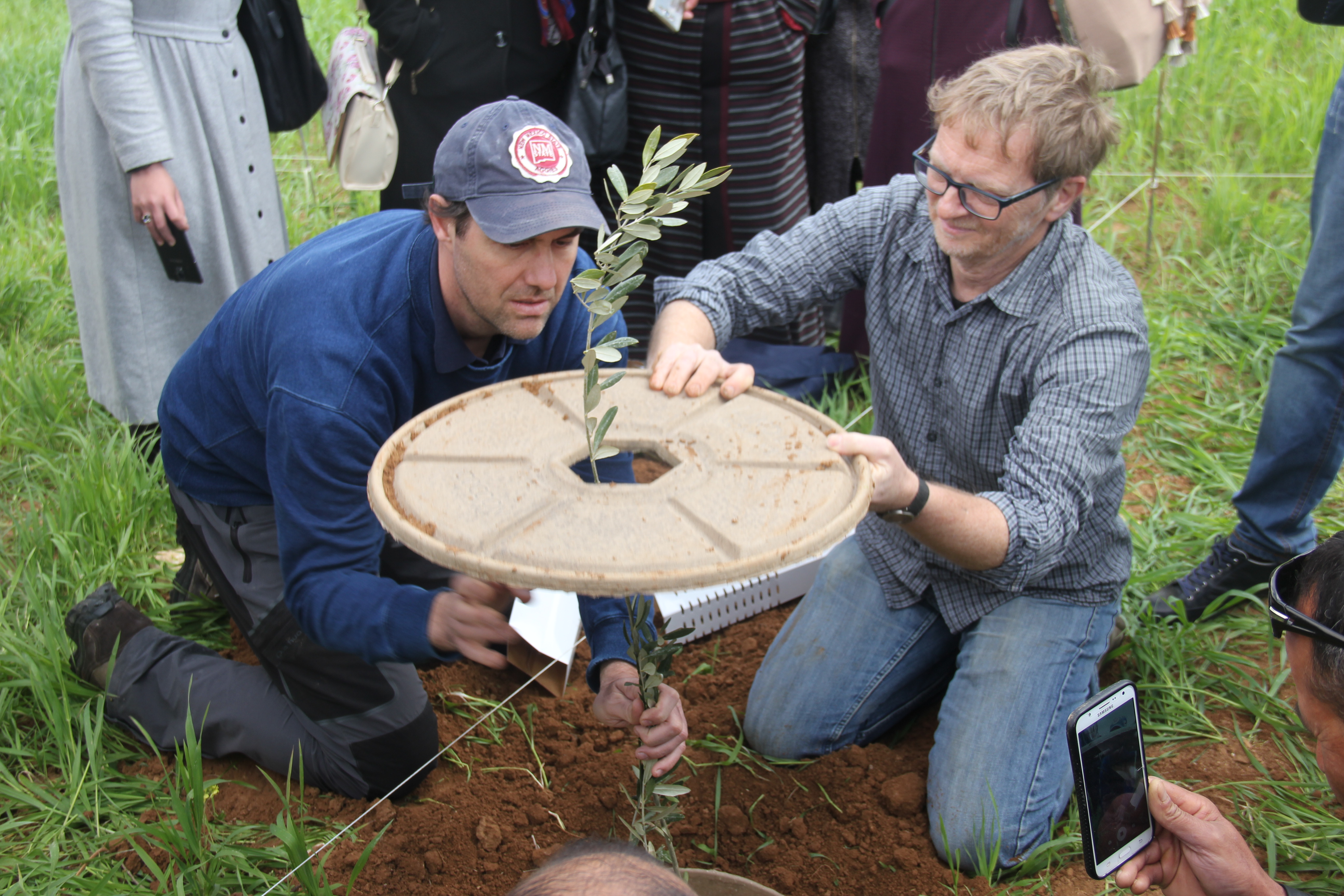Artist and designer Fatima Gharaibeh has teamed up with the Menaqua Foundation to raise money to regreen the Middle East. She is doing this by creating a collection of 1,000 NFTs (non-fungible tokens) that will be available for sale online this autumn. Fatima is generously donating 25% of the money raised to the Menaqua Foundation’s tree-planting projects in Jordan. Here, she explains how the partnership with the foundation came about and why she opted for NFTs.
Menaqua Foundation (MQ): You only heard about MQ a few months ago. You’re now working on a collection of 1,000 NFTs to support our work. How did that happen?
Fatima: I started reading about NFTs in late 2021. I was curious to learn how they relate to art and how my art can relate to them. Essentially, NFTs are a digital version of traditional collector’s items like paintings, books or records. As collector’s items, NFTs are often unique and have built-in authentication that serves as proof of ownership.
Then by chance, at the beginning of 2022, I was contacted by Venusverse, a female-focused educational programme that aims to remove barriers to entry for women in Web3. Web3 is the next generation of the internet and is based on things like blockchain technology, cryptocurrency and NFTs. Venusverse hired me to help create its first ‘Women of Venusverse NFT Collection’.
The more I learned about NFTs, the more I realized that art can be a force for good in the digital era. From there I started thinking about how my own art could address the climate crisis. The idea of planting trees in Jordan, where I’m originally from, and the Middle East more broadly was always on my mind. When I searched for organizations that could help me, I saw that the Menaqua Foundation was already doing what I was looking for.
I emailed the foundation with my idea to develop a fundraising collection of NFTs and received a positive response within 24 hours.
MQ: You’ve made some big moves in your life, from Jordan to Canada and from a career in science to art. How did you get where you are today?
Fatima: I’ve always been drawn to art, crafts, colours and design. I grew up in a home where the cupboards were filled with crafting tools and supplies. Those tools were my toys and creating was always around me.
Art wasn’t my primary path though. I earned a degree in nutrition and food technology and worked as a nutritionist for several years in Jordan. When I moved to Canada ten years ago with my husband, who was completing his PhD here, I had the mindset of change. Living in Vancouver sparked my passion for art, and I immediately enrolled in painting classes. That was the start of my transition to art and media. I worked on my graphic design skills and qualifications while learning digital art on my own.
MQ: What kind of art do you make mostly? What inspires you, and how do you translate your ideas into images?
Fatima: I paint digital art on my iPad. I like using the Procreate app, as it mimics fine art brushes and textures. I always keep my mind and eyes open for inspiration. Every new experience in my life – from galleries and books to playing with my kids – eventually shapes my thoughts, ideas and art.
My background in science helped me to develop a creative process that works for me. I always start by researching my topic. I initially try to stay away from the creative side of the project and to begin with facts and data. From there, I start getting the look and feel of the project and which direction I should take. Then I start sketching really rough ideas. Nothing neat, as worrying about perfection limits my creativity. I don’t start painting until I have a full picture of my creative direction.
MQ: You’re currently developing the ‘Regreen the Middle East’ NFT collection for the Menaqua Foundation. Tell us about that.
Fatima: The collection features endangered birds and animals combined with portraits of women from around the world. As an art project, the collection aims to raise money. But it also aims to raise awareness about the many miraculous species on this planet and how important it is to protect them, in part through regreening initiatives. I’ll be publishing previews of the works on the collection website as I finish them. Updates will also be posted on this website and social media (Facebook, Twitter, LinkedIn), including details of where and how to buy the works.
MQ: Thank you for sharing some first information on this challenging project, Fatima. We will be back with a second interview after the summer break. Good luck with the progress on the NFT collection.
